Local Anesthetic – Is it Safe?
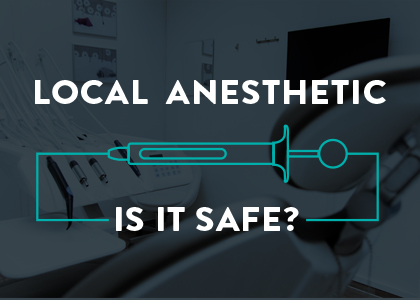 If you get to go on a tropical vacation, your ability to feel the warm sun and the smooth sand is crucial to enjoying the atmosphere. There are, however, times in life when you would rather not feel anything. Getting a dental procedure can be one of those times—as important as the procedure might be. In that case, thank goodness for modern medicine and anesthesia.
If you get to go on a tropical vacation, your ability to feel the warm sun and the smooth sand is crucial to enjoying the atmosphere. There are, however, times in life when you would rather not feel anything. Getting a dental procedure can be one of those times—as important as the procedure might be. In that case, thank goodness for modern medicine and anesthesia.
Ancient dentists used a number of herbs and drugs to numb their patients. Thankfully, today, you have the option of completely safe and effective anesthesia. Dr. David Case, Portland dentist shares more below about what anesthesia is and when you might need it.
What is Anesthesia?
Anesthesia is a type of medicine best known for dulling pain. The root-word “an” means without and “aesthesis” means feeling. Anesthesia literally means “without feeling.” That perfectly describes how most people want to feel if they need to get a cavity filled or a tooth pulled. Anesthesia can also help you feel relaxed during your treatment and ease your pain afterward.
Besides numbing your sensation to feel, anesthesia can also contain chemicals that help the medicine get into your blood and stay in your system as long as necessary. Millions of patients every year receive anesthesia from their dentist.
Local Anesthetic
There are two kinds of anesthetics: general and local. If you have major surgery, even oral surgery, your doctor might recommend general anesthesia to numb your entire body and cause you to sleep for the duration of the procedure. This might sound scary, but many people really enjoy the chance to take an amazing nap.
Most often, dental work only requires a local anesthetic. Local anesthetic blocks your nerves in a small, specific part of your body. In your dental office, this is usually administered by injection. A topical anesthetic can first be placed on your gums or inner cheek to numb you from feeling the injection.
If you have a toothache, you might consider an at-home topical anesthetic to ease your pain until you can get in to see your Portland dentist. Orajel™ is a popular topical numbing gel for adults and teething babies. Your local drugstore should have plenty of options depending on your specific needs.
Side Effects of Local Anesthesia
Anesthesia, when administered by a professional dentist, is very safe. Still, it’s important you know the potential side effects—especially if you have other health issues that might interact with your procedure. Talk to your dentist before agreeing to any medicine or treatment.
Potential side effects of local anesthesia are:
- Hematoma: a blood-filled swelling at the injection site
- Numbing and loose muscles in other parts of your face, beyond your mouth
- Nerve injury at the injection site
Local anesthesia is commonly used safely and effectively with little to no side effects.
After Your Appointment
If you receive a local anesthetic at the dentist, the numbing effects may stick around for a few hours after your appointment. Be careful not to bite down on your mouth where you don’t have any feeling. Plan on having some difficulty speaking, eating or drinking. (This is probably not the best time to schedule a first date or job interview!) You will be able to safely drive yourself home.
You can keep treating your pain at home with Tylenol or ibuprofen. Ask your Portland dentist for a recommendation.
With general anesthesia, however, you will need transportation to and from your appointment, and someone should stay with you for several hours afterward while the effects wear off.
If you need any dental work or just a good professional cleaning, contact Family Dental Health today.
The content of this blog is not intended to be a substitute for professional medical advice, diagnosis, or treatment. Always seek the advice of qualified health providers with questions you may have regarding medical conditions.

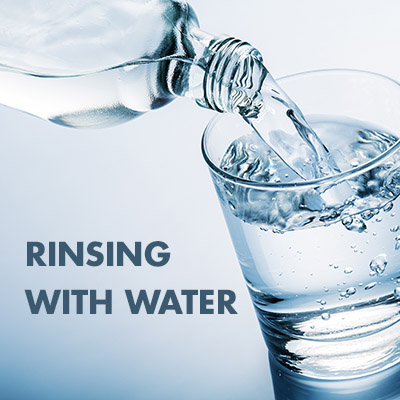 For a long time, we’ve been told to brush our teeth right after we eat, but conventional wisdom might be changing on that. Thanks to your mouth’s powerful and natural ability to clean itself, rinsing with water might actually be the best way to freshen your breath and prevent cavities after you eat.
For a long time, we’ve been told to brush our teeth right after we eat, but conventional wisdom might be changing on that. Thanks to your mouth’s powerful and natural ability to clean itself, rinsing with water might actually be the best way to freshen your breath and prevent cavities after you eat.  Diabetes is a chronic and complicated disease that affects how your body processes sugar—its main source of energy. Diabetes symptoms mostly affect your heart, eyes, nerves, and kidneys, but it can affect your whole body, including your mouth.
Diabetes is a chronic and complicated disease that affects how your body processes sugar—its main source of energy. Diabetes symptoms mostly affect your heart, eyes, nerves, and kidneys, but it can affect your whole body, including your mouth.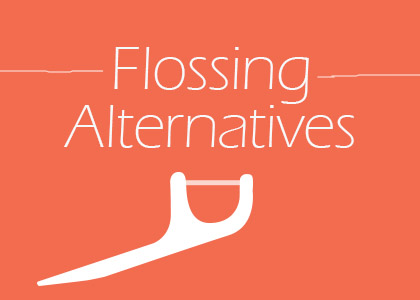 There are two kinds of people in this world: those who floss, and those who don’t. Diligent flossers everywhere inspire those of us who live with them or know them. Flossing may not be a philosophical virtue but it’s certainly high on the list of qualities amongst people who “have it together.” Read more below about why flossing is so important and what alternatives you have if you don’t like traditional floss.
There are two kinds of people in this world: those who floss, and those who don’t. Diligent flossers everywhere inspire those of us who live with them or know them. Flossing may not be a philosophical virtue but it’s certainly high on the list of qualities amongst people who “have it together.” Read more below about why flossing is so important and what alternatives you have if you don’t like traditional floss.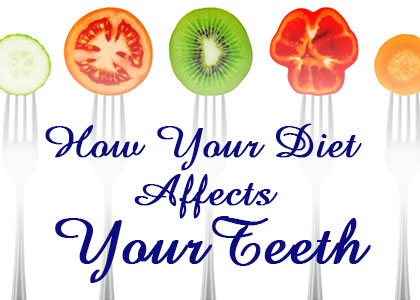 Some foods will help you grow healthy teeth and keep them forever. Some foods will prevent you from growing healthy teeth, or harm the ones you already have. You can grow and maintain strong, healthy teeth by
Some foods will help you grow healthy teeth and keep them forever. Some foods will prevent you from growing healthy teeth, or harm the ones you already have. You can grow and maintain strong, healthy teeth by 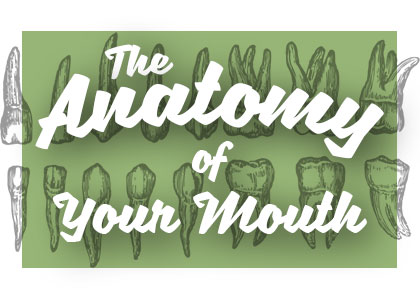 Welcome to your mouth! A healthy mouth is necessary for a healthy life. You might be surprised how many different parts work together to make your mouth function. Read more below from
Welcome to your mouth! A healthy mouth is necessary for a healthy life. You might be surprised how many different parts work together to make your mouth function. Read more below from 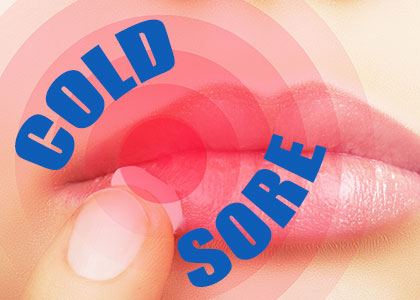
 Living in a land of antibacterial gels, soaps, plastics, and even fabrics, it might surprise you to hear that tons of bacteria live in your mouth every day, and they aren’t all bad! In fact, some play an important role in keeping up your overall health.
Living in a land of antibacterial gels, soaps, plastics, and even fabrics, it might surprise you to hear that tons of bacteria live in your mouth every day, and they aren’t all bad! In fact, some play an important role in keeping up your overall health. 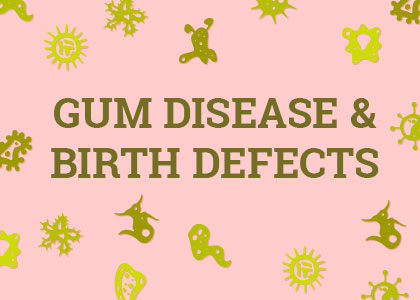 What is Gum Disease?
What is Gum Disease? When he became the first president of the United States, George Washington had only one real tooth left! You heard right—just ONE. Everyone has heard something about this great man and his dental history, but if you heard that
When he became the first president of the United States, George Washington had only one real tooth left! You heard right—just ONE. Everyone has heard something about this great man and his dental history, but if you heard that